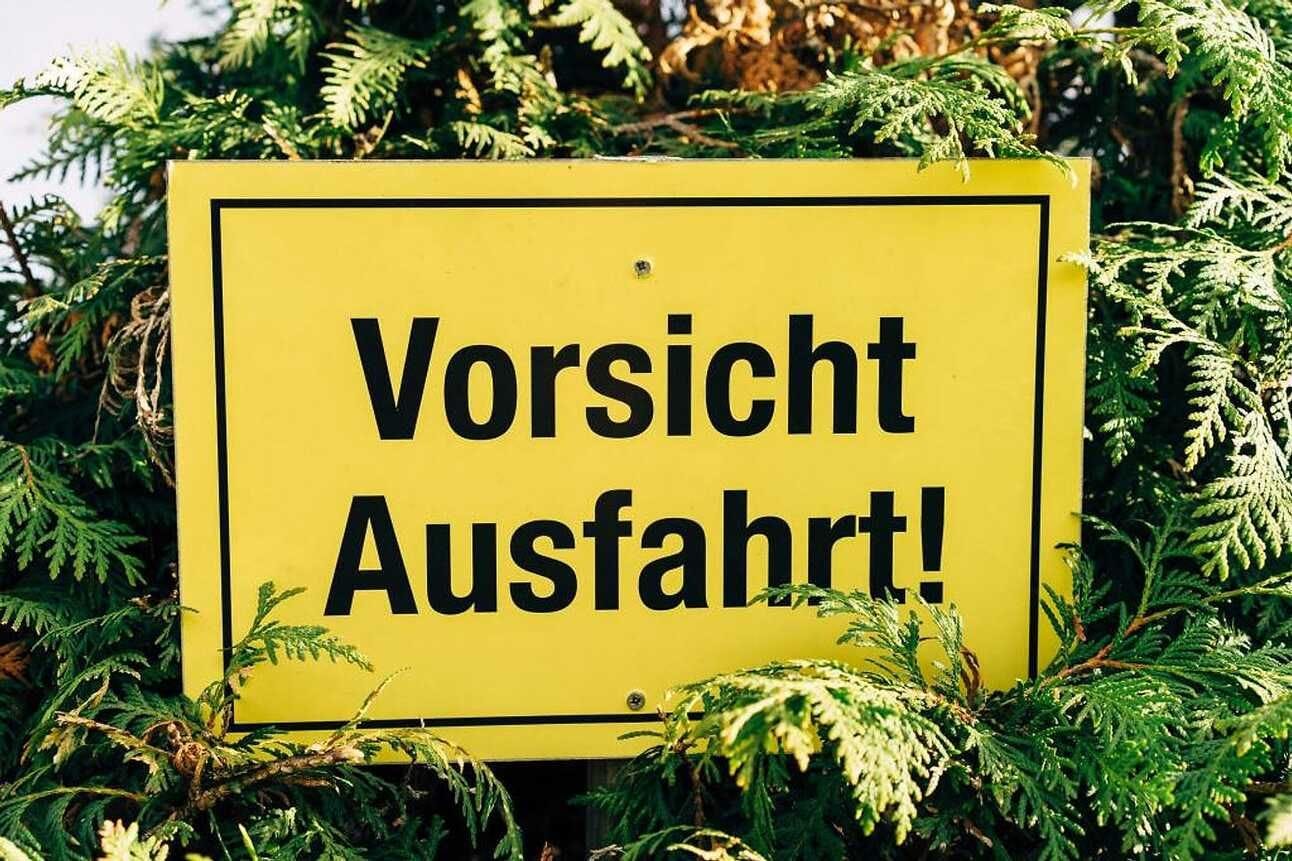No, Everyone Doesn't Speak English Here
Trust me, you'll have plenty of opportunities to practice your German
Note: I absolutely do not expect people to speak English with me. I am learning German. This is not a post meant to be critical of Berlin or Germany. I just want to correct what I think is a common misconception on the part of some people moving here.
Recently I’ve encountered a recurring theme among questions posed in online forums about Berlin. People who are considering a move here have heard that “everyone speaks English there.”
For some, that’s a drawback, and they want to know – since they want to learn German – where in Berlin they should live so that people don’t “always” speak English to them.
On the flip side, other people don’t speak German and want to know where in Berlin they should live so they don’t have to.

To that, I want to say two things:
Berlin is currently experiencing a serious housing shortage, and average rents have increased 27 percent in the last year. You should live wherever you can! For apartments close to the median price per meter, there are often hundreds of applicants for each place. Too many people speaking English to you – when you speak English – is going to be the least of your problems.
While it is true that most Germans learned English in primary school and many Germans are fluent, that does not mean you can expect to speak English everywhere. I highly recommend having at least an A1.2 level* of German before you get here. You can get by without it, but life will be much more pleasant if you can start off most interactions in German.
Now, the Internet boards are full of people who swear they have lived in Berlin for years and never learned German. What they probably aren’t saying is that they either work in a mostly English environment (certain industries here have a lot of foreign workers and English is the lingua franca), or they are at a university in an English program.
The other thing they aren’t saying is that – when they go to the doctor, or the local government office, or the bank, etc. – they take an interpreter. This is either someone paid to translate or a German friend or German-speaking family member who can serve as an informal translator.
If you don’t speak German at all, I highly recommend doing this if you need to do something important and can afford it.
I think most places in Europe you can do ‘tourist spending money’ things like rent a hotel or AirBnB, go out to eat, go to a museum or club in English – no problem. That’s certainly true here as well.
But if you need to live here – you definitely need some German.

To give a personal example: When we have gone to the doctor’s office – even though we specifically chose providers who advertised that they spoke English – I have found that you need to speak German to the front desk staff. Even if the doctor speaks English, their receptionist may not - or may. not want to.
Again, to be clear, I am not complaining. I chose to move here. I expect to speak German in Germany. I am learning German as fast as I can. And I agree that English privilege is a thing and I am aware of it.
Things like this** happen, and, in my opinion, are pretty obnoxious.
But when I hear people say that they can’t learn German in Berlin because English is so prevalent, I have to say that I don’t know where they are that that is the case.
One person wrote on a Reddit thread that progressing past a B1 level in German was difficult, because so many people will switch to English once they can tell you aren’t a native speaker (and that you speak English). And that, I can see. Beyond B1 gets into some more complex topics and grammar and it’s hard. Most people are going to switch to the language that you both are most comfortable in.
But I feel that people who come here expecting English to be some kind of second primary language are in for a bit of a shock.
Some Berliners complain (online - so take that with a grain of salt) that they go to certain neighborhoods and only hear English. Again, I don’t know where that is. We live on the east side of the city, my oldest child attends a high school on the southwest side. We have been to almost every area of town for work, school or leisure and I have never been somewhere I heard mostly English. Not saying I have been to every neighborhood, so it may be that it’s out there. I am just saying it’s not the whole of Berlin or even the largest part of it.
I think it’s worth mentioning that Germany, in general, and Berlin, in particular, is home to a large number of immigrants from all over the world. A recent government survey found that almost a quarter of all residents in Germany had a “migration background” – meaning either they or at least one parent had immigrated to the country after 1950. In Berlin, I think the number is edging closer to 30 percent.
Many of these immigrants also speak English as a second language – the way that many Germans do. And I think many Germans feel better about speaking English with others who also speak it as a second language than they do with people who only speak English.
There is a lot of historical, cultural and political context that comes into play there, but that is a better left to its own post.
Tip for newbies: Always start in German
If I could give any new non-German resident just one piece of advice, it would be this: Always, always, start interactions with people you don’t know in German. Never ask if they speak English.
At the doctor’s office, customer service counters, restaurants, government offices, pretty much everywhere - start in German. Even if all you know is ‘Guten tag!’ Start with that and just keep going.
Many times, yes, the person will switch to English if they can. A lot of times, they will switch the second they hear your accent. Sometimes, they’ll ask if you want to switch.
Sometimes they won’t ask and they’ll keep speaking German - and you may need to try to break out the translation app on your phone. And, often, that won’t work because they’ll just cut you off and send you away.
I’ve seen people dismissed from the line at the doctor’s office, from the line at the Deutsche Bahn service counter (at the Berlin Hauptbahnhof, no less), or hung up on (that was me), because they didn’t speak German well enough to conduct the business at hand.
I have also had plenty of people take pity on me and switch to English - or go find someone to help translate - when it became clear that my German was insufficient. But I suspect it is because I always start with German and they can see that I am trying (and also that the conversation is going to take a looongg time) that they decide English is preferable.
*According to the Common European Framework of Reference for Languages (CEFR). CEFR levels are used by universities, corporations and the immigration authorities to evaluate a person’s language competency when needed. For example, obtaining permanent residency in Germany requires applicants to achieve at least a B1 level of German. Each letter level (A – C) has two number levels and each number is subdivided again (so, A1.1. is absolute beginner, A1.2 is the next step up) B1 is defined as “intermediate.” C1 would be fluent to a native speaker level.
** These images are from an Oatly billboard ad campaign in the Ubahn stations in Berlin this winter. I posted some photos on Instagram at the time, but they were on my Stories and not saved. When I saw them, they took up every single ad space in the subway station and they were all in English. It turns out Oatly is a Swedish plant-based beverage maker and they do their campaigns almost exclusively in English – even in Sweden. I still find this deeply weird.
This post was originally published on the old version of AF/NL on March 23, 2023. It has been edited and updated.




